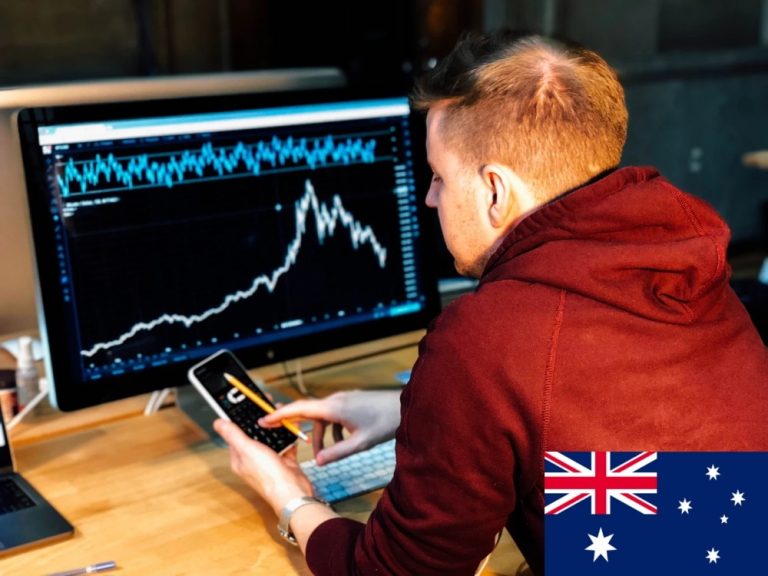
The global appeal of forex trading has piqued the curiosity of people looking for financial possibilities. Australia, renowned for having strict regulations and a welcoming environment for investors, has developed into a major centre for forex trading. The legality of Forex trading in Australia, as well as the rules and tax repercussions they should be aware of, are frequently questioned by aspiring traders. In this article, we examine the nuances of forex trading in Australia, look at the regulatory framework under the control of the Australian Securities and Investments Commission (ASIC), and discuss the tax on forex trading in Australia. Traders may confidently approach Forex trading in Australia and assure compliance with the appropriate rules by being aware of legal and financial issues.
Is Australia a Legal Forex Market?
In Australia, dealing in forex is legitimate. The regulatory body in charge of policing the nation’s forex trading activity is the ASIC. The Australian Financial Services Licence (AFSL), issued by ASIC, is a requirement for all domestic brokers, guaranteeing compliance with the rules and legislation established in the Corporations Act 2001. Australian traders also have the choice to transact with foreign brokers while observing the necessary laws.
Security and regulation:
Regulation is essential for protecting traders’ capital and fostering transparency in the forex market. Brokers subject to ASIC regulation are known for being dependable and trustworthy. Therefore, to safeguard their interests, traders must select a well-regulated broker. Regulation also extends to the protection of client funds. ASIC requires regulated brokers to segregate client funds from their own operating funds, ensuring that client funds are held in separate accounts. This segregation of funds helps to prevent misuse or misappropriation of client funds by the broker and provides an additional layer of security for traders.
Key Factors to Bear in Mind When Selecting an Australian Forex Broker:
- Regulation:Choose brokers who are ASIC-regulated to provide a secure trading environment.
- Cost structure:Seek accounts with competitive commissions and raw spread prices, such as ECN accounts.
- Asset Selection:Diversification is crucial for good risk management, so look for brokers with a wide selection of trading instruments.
- Trading Platforms:Check if the broker offers trustworthy trading platforms, including MetaTrader 4 (MT4), or exclusive options that improve your trading experience.
Tax on Forex Trading in Australia:
Whether their trading operations are carried out locally or abroad, Australian Forex traders must disclose their gains to the Australian Taxation Office (ATO) for tax purposes. For proper advice on the applicable taxes based on their unique trading conditions, merchants must consult a professional accountant due to the complexity of the Australian tax system. The ATO makes a distinction between traders and investors. Investors often purchase and sell infrequently without looking for quick gains. On the other hand, a forex auto trader wants to make a consistent living off of his or her trading operations. For these two categories, there are different tax laws and rates.
Investors can carry losses forward to mitigate losses and receive tax breaks of up to 50%. However, traders can quickly balance their losses against gains. Depending on their revenue, dealers may be subject to a tax rate as high as 45%. Seeking the help of a licenced accountant is strongly advised due to the intricacy of the Australian tax legislation and the potential financial penalties for erroneous reporting. Alternatively, specialized software is offered for people who would rather handle the tax repercussions independently.
Tips for Successful Forex Trading in Australia:
Here are some extra suggestions to improve your Forex trading experience in Australia in addition to comprehending the legal and tax implications:
- Establish a Quiet and Focused Trading Environment:Create a dedicated trading space even if you trade from home.
- Reduce diversions:Avoid social media diversions, especially during trading times.
- Take Regular Breaks: Avoid spending extended periods in front of a device to retain attention and minimise mental weariness.
- Physical and Mental Well-being: Set a high priority on your physical and mental well-being. Regular exercise and a balanced diet help you stay mentally sharp and feel well overall, giving you an advantage in the market.
- Analyse and Visualise:To find areas for development, continuously evaluate your transactions, gains, and losses. To improve performance, visualize your trading plan and the approaching trading days.
The Bottom-Line:
Australia is at the forefront as a sought-after location for traders looking for a safe and regulated trading environment as the Forex market continues to grow. Australian traders can deal in forex with confidence since the ASIC continuously monitors the activities of Forex brokers and the regulatory framework. Individuals may increase their chances of success in this vibrant and profitable market by complying with regulatory standards, getting expert tax guidance, and applying best practices throughout their trading journey. The industry’s prospects for expansion and innovation are still bright as Australian forex trading develops in response to technical improvements and the nation’s tight linkages to the world economy. With a commitment to knowledge, discipline, and adaptability, traders can position themselves to thrive in the Australian Forex market and capitalize on the exciting possibilities.

